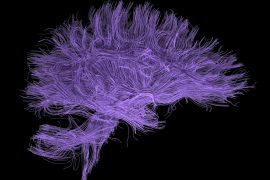Part 1: MCQs – recognition or retrieval?
Students often tell us in unit of study surveys and other student feedback how much they appreciate practice quizzes – and they frequently ask for more of them. Students may not know how it works, but research has shown that they are right – these quizzes do help them learn and retain knowledge.
Retrieval practice to retain learning
Retrieval practice is the act of calling information to mind rather than rereading it or hearing it. The idea is to produce ‘an effort from within’ to induce better retention.
We have known for a long time that retrieval practice is better at reinforcing knowledge than restudying information, and that testing is a good way to activate this retrieval process. This is known as the testing effect. But can MCQs help? Or does retrieval only occur with cued recall /short answer questions?
Unlike short answer questions, MCQs provide the correct answer, and so many have argued that MCQs will only engage recognition processes, and not trigger learning. But a group of researchers challenged this perception and found that properly constructed multiple choice questions do indeed activate the knowledge retrieval process, leading to learning.
In one experiment, two groups of students were given the same factual passages to study, and then each group was given a test – one group were given multiple choice questions, the other were given the same questions but as cued recall (short answer with no alternatives). Neither group was given feedback. After 5 minutes distraction, both groups were given a final cued recall test, consisting of previously tested questions, control questions and related questions (these were questions related to incorrect alternatives in the original MCQs). The MCQ group performed better in the previously tested questions AND in the related questions than those who had done the cued recall practice quiz – suggesting that the MCQs helped students learn not only from correct responses but also from the distractors.
The results are evidence that MCQs can exercise the knowledge retrieval process, and not just the recognition process. So practice tests are a great way to consolidate knowledge. A major proviso on this is that the multiple questions must be well constructed:
For multiple-choice tests to function as effective practice tests, it appears that they must present incorrect alternatives in a way that will induce students to recall why those alternatives are incorrect; such recall, in turn, can lead to subsequent recall of the information if it is tested later, say, during a final examination.
Writing good distractors is a challenge!
It can be very time consuming to write good multiple choice questions, and writing good quality distractors is the hardest part. But don’t despair; research into the validity and reliability of multiple choice questions has found that quality of distractors is so much more important than quantity that three and even two options can be sufficient to obtain reliable and meaningful test scores as long as the distractors are functional. So it makes sense to put your effort into writing fewer, better distractors.
Distractors should be plausible (but not so plausible that they are unfair), similar in length and language as the correct answer, and unambiguously incorrect. Good sources of plausible distractors are common misconceptions and typical errors from test takers, or correct answers to different questions.
Example
Q1. The learning strategy of retrieval practice is the act of:
a. re-reading information previously studied
b. calling to mind information previously studied
c. retrieving journal articles from a database
d. retaining important knowledge
e. formative quizzes for practice
f. revising information previously studied
a) Is a good distractor
b) Is the correct answer
c) Is not a good distractor; it is not plausible – it attempts to lure the student with the word retrieve, but is unlikely to fool anyone
d) Is not a good distractor; it is not exactly incorrect – retrieval practice is a way of retaining knowledge
e) Is not a good distractor;it is not grammatically consistent with the stem, so it is easy to discount
f) Is not a good distractor; it is a general concept that includes the correct answer as well as another of the distractors
Once you’ve written your MCQs it’s always a good idea to get others to look at them. You can ask your colleagues or students with enough expertise to provide feedback – perhaps students from previous sessions or postgraduate students (for undergraduate courses). Ask for specific feedback on the distractors – are they both plausible and unambiguously incorrect? Also of course, check that your colleagues agree with your correct answer!
Visit the Teaching Resources Hub for more guidelines in formulating MCQs.
In part 2 of this series we look at how multiple choice questions can reactivate knowledge stored in memory, but not accessible at a given time.
In part 3 we look at how learning from MCQs is transferrable, and the role of feedback in retention of knowledge.






1 Comment